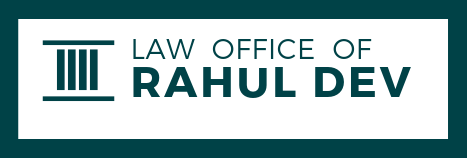Things You Need To Know iDAY2012
During the exciting journey of entrepreneurship of almost every aspiring entrepreneur, it is very common that the entrepreneur has a bright idea for a groundbreaking business, an innovative product or an improvement over the existing competitors. Every entrepreneur having an internet business idea dreams about becoming the next Mark Zuckerberg or Bill Gates, and suddenly it strikes his mind, “What if he tells people about his idea and someone steals it, or someone launches a business based on his idea before him?”
There comes the most common concern of all the entrepreneurs, as eventually, they have to discuss about it with other people, at one point of time or other, primarily to get the idea from a conceptual stage to the real market, and such other people may include vendors, investors, employees, potential business partners, or even mentors. So the question remains as to how to market your idea to such other people without having someone to steal or copy the business idea. Here are few crucial things you need to know.
First and foremost, the primary goal should be to protect the internet business idea, which is also applicable to almost any business idea without limiting to the virtual world of internet. This can be done by using a combination of available legal means, mainly including intellectual property law, trade secrets law, and contract law.
Generally, intellectual property law relates to various types of protections for protecting intangible (intellectual / non-physical) business assets, i.e. the internet assets). Such protections include Copyright, which is mainly used to protect the appearance of a website and code of the corresponding software, and further protects the skill and effort in an author’s work. The appearance of the website may include the layout of the various screens of the website, a combination of its color schemes, fonts, and the like, to the scope that the appearance and code are sufficiently new, original, and therefore, a copyright protection by way of registration may be used to prevent others from designing and publishing similar looking websites, or copying the exactly similar software code.
Secondly, trademark protection may be used to protect the brand / business / trade name under which various business activities are performed, which can be further extended to protect logos, tag lines, domain names, and the like. Trademark registration under trademark law is one of the most effective and crucial mechanisms of protecting an internet business from competitors. Depending upon the jurisdiction in which business activities are performed, a valid trademark registration entitles its owner to prevent competitors from doing similar business or providing a similar service under a “same / similar” brand / business / trade name, or using “same / similar” logos, tag lines, domain names, and the like.
Thirdly, patent protection may be used to protect the business idea behind a product, or technical aspects of the internet business. Generally, as it is well known, patent protection is used to protect “novel” ideas, which are inventive and have industrial application.
Additionally, trade secret protection is one of the most effective ways to protect new internet business ideas while dealing with employees, consultants, investors and other third-parties. Trade Secret Protection is mainly achieved by employing a string confidentiality or non-disclosure agreement, which is a contract whereby all the parties undertake not to disclose any trade secrets provided to them by the disclosing party. Such confidentiality and non-disclosure agreements may be drafted to include information developed and used by a person or business to effectively run the business, further including, but not limited to, business manuals, business literature, client lists, marketing methodology, emails, letters, marketing material including brochures, flyers, etc., business cards, business stationary, inventions, prototypes, documented concepts, implementation ideas, and the like.
In addition to the above-mentioned protections, various related business steps may be executed to strengthen the extent and scope of protection of internet business ideas, which may include appropriate incorporation of a legal entity, well drafted incorporation documents, and partnership or shareholder agreements to outline rights and responsibilities between partners and investors, employment agreements, web development agreements, and various other contractual protections covered under general contract laws.
To know more about us, mail us at rd (at) patentbusinesslawyer (dot) com.
